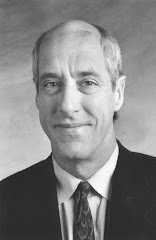APRIL 13, 2009 POLITICS / JOHN MAGINNIS
Every year, Sen. John Alario, D-Westwego, proposes a
constitutional amendment to double the homestead exemption to
$150,000. And every year, after business and local government
groups testify against the plan in committee, it dies there.
What's changed this year--creating more buzz about his
perennial bill in years--is the sticker shock of owners of
houses that were realistically reassessed in 2008 for the
first time in years. That, in turn, caused one young real
estate broker to begin an on-line petition to raise the
exemption to $160,000, which, said organizer Joshua Kahler,
would cover the inflation that has taken place since the last
increase in 1982.
To date, the petition has garnered about 55,000 signatures,
though the rate has significantly tapered off from its fast
start. Kahler hopes the show of support builds into public
pressure on legislators to put the question on the
constitutional ballot.
Yet, assuming all petition signers are voters, 55,000 is
less than 2 percent of statewide registration of nearly 3
million. A random review of on-line signatures at the site
shows a heavy concentration in the suburbs of New Orleans,
Baton Rouge and Lafayette, where property values have
escalated most. The distribution is sparser in urban
neighborhoods, small cities and rural parishes. Legislators
from those areas already are speaking out against the proposal
and say they have more than the one-third votes needed to
block it.
An informed debate, however, would be healthy, given that a
whole generation of homeowners has come along since the
exemption was last raised.
At $75,000, Louisiana's homestead exemption is the highest
in the nation, and the tax burden on individual homeowners is
the lowest. According to the non-profit Tax Foundation,
Louisiana ranks 46th in state and local property taxes on
owner-occupied residences, an average $183. Its "tax burden"
ranking falls to 51st for residential property taxes as a
percentage of both per capita income and home value.
Fifty percent of homeowners are fully covered by the
homestead exemption, while businesses pay 80 percent of
property taxes. That's fairer than a quarter century ago when
80 percent of homesteads were assessed below $75,000 and
businesses carried 90 percent of the load.
After a few tries, business and public interest groups
have given up on lowering the exemption. Instead, rising
property values have gradually, if slowly, adjusted the
balance to include more homeowners among the payers.
That trend should be left to continue. Raising the
homestead exemption to $75,000 was a mistake that should not
be compounded by giving the large majority of homeowners a
free ride once again.
It's more than a matter of national rankings and business
climate. It's the principle that every property owner should
contribute something to the public services--education, law
enforcement and public works--that support the community while
protecting and enhancing property values.
Most legislators understand the value of keeping a broad
base of property tax payers. Despite the Internet-fueled
populist appeal of the proposal, its chances of passage at the
Capitol are slim again.
But since Sen. Alario will be back with the same bill next
year and after that, maybe it's time for an alternative
approach. Instead of fewer homeowners paying property taxes,
there should be more.
Rep. Kevin Pearson, R-Slidell, has filed a constitutional
amendment that would not raise the homestead exemption but
would elevate it to apply to property values between $10,000
and $85,000. In that way, every owner pays taxes on the first
$10,000, but property over $85,000 would not be taxed any more
than now.
The fair way to finance basic local services is for
everyone in the community to pull the wagon at least a little
while virtually every homeowner still gets a break.
Yet fair doesn't make it politically viable. It's hard to
imagine two-thirds of legislators voting to tax the half of
homeowners who currently pay nothing. But since proposals to
raise the homestead exemption will always be with us, those
who favor a more civic-minded approach deserve a cause to back
as well.
Tuesday, April 14, 2009
Subscribe to:
Post Comments (Atom)

No comments:
Post a Comment